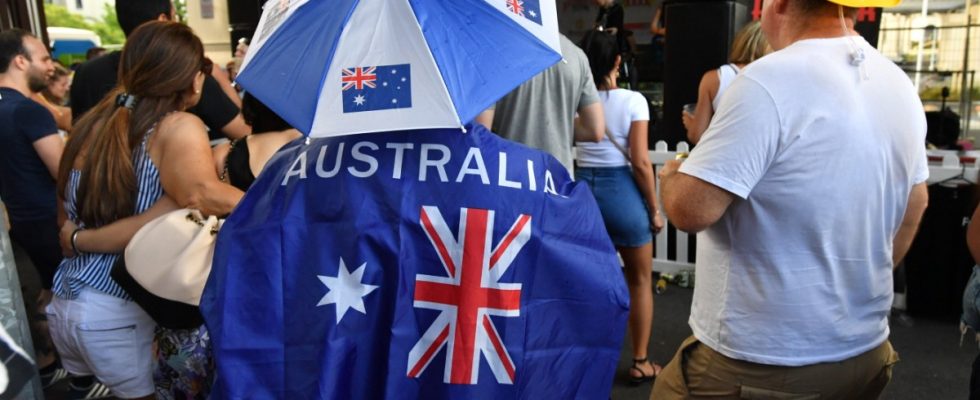Peter Dutton probably won’t be shopping at Australia’s largest supermarket chain any time soon. “I think people should boycott Woolworths,” said the leader of the opposition Liberals on the high-reach channel 2GB and went one better: he would “very strongly recommend” that Australians rather give their money to the competition.
What drove the opposition leader to his unusual call for a boycott was a decision made by the trading group, With a 37 percent market share, it is clearly number one on the continent, had announced shortly before. This January, Woolies, as the Australians call the 99-year-old traditional company, will no longer be putting some items on its shelves that were previously a normal part of the range at this time of year: knick-knacks decorated with the national flag, the British Union Jack with the star sign of the cross of the South, T-shirts, hats, flip-flops, bikinis, inflatable kangaroos, things like that, optionally also in the national colors green and gold, popularly known derisively as peas and pineapples.
In this spirit, many Australians go to the beaches and parks on January 26th to celebrate Australia Day, their national holiday, with shrimp, steaks and white wine. But you can no longer buy such national memorabilia at Woolworths and its sister brand Big W this celebration season. Woolworths justifies the sales stop with a decline in demand.
However, the shitstorms that then blew through social media indicate that there is more to it. In fact, there is a fierce culture war going on here over whether January 26th is really the appropriate day for Australia to celebrate itself with barbecue and fireworks.
For the natives, the anniversary is not a reason to celebrate
On this day in 1788, the so-called First Fleet, loaded with convicts and their guards, landed in the bay where Sydney’s much-photographed opera house now stands. It was the beginning of the British settlement of the continent – and for its native inhabitants the beginning of a long period of suffering, filled with epidemics, massacres, genocide, theft of land and children, oppression and racist discrimination, which in many cases continues to this day. For them, this holiday is not a day for celebration.
Civil rights activists have long been calling for Australia Day to be celebrated as a quiet day of remembrance and for fireworks and parties to be moved to another date. However, many conservative Australians have no regard for their fellow indigenous citizens. It was only in the autumn that a majority of voters rejected the Labor government’s proposal to give the country a political say in the constitution Aboriginal Australians to commit.
But skepticism about a casual celebration of colonization is growing. Aldi is also no longer involved in the holiday utensils business; the department store chain Kmart said goodbye to it last year. Party-loving Australians don’t have to look far: Woolies’ toughest competitor Coles announced it would launch “a small range of Australian-themed summer entertainment products” in its supermarkets. to be ready.

